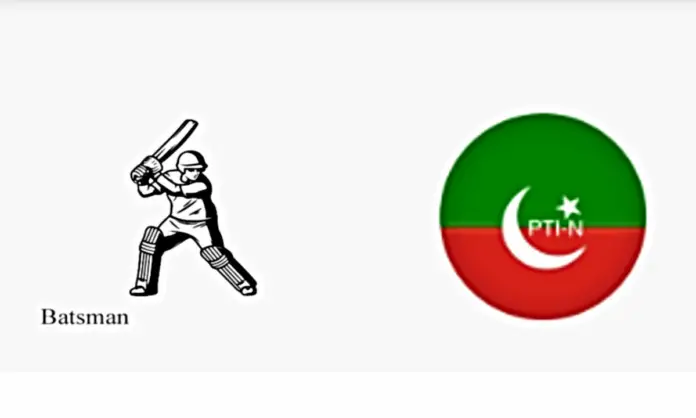Well, there is no Bat and no Batman in Pakistan politics after the Supreme Court’s verdict. However, the nature of power politics in Pakistan is analogous to what Harvey Dent (played by Aaron Eckhart) says in The Dark Knight, the second film in Christopher Nolan’s Batman movies, “You either die a hero or you live long enough to see yourself become the villain.” The politicians have time and again suffered political deaths. If they live a little longer in power, they have been seen as villains. The politicians have even strived to achieve the political martyrdom to prolong the political career and occasionally carve an eternal legacy. The tragedy is that such efforts have been rarely in the cause of democracy. In Pakistan, democracy has been both a narrative to gain power, and a casualty in pursuit of power. The blame game, and the heroics on the political spectrum of Pakistan ask multiple questions. Every institution and political group blame each other for the ailing democracy in Pakistan. As it was manifest in Shakespeare’s play Henry VI, where during the war of the Roses, similar blames were hurled upon each other, which culminated into the oft’ quoted remark,
“Tis much when sceptres are in children’s hands,
But more when envy breeds unkind division:
There comes the ruin, there begins confusion.”
Such confusion renewed in the legal and political corridors, recently. In a significant development on the night of January 13, Supreme Court of Pakistan declared the intra-party polls of Pakistan Tehreek-e-Insaf (PTI) null and void, revoking the party’s use of the ‘bat’ as its election symbol. This ruling addressed the ongoing controversy surrounding the iconic electoral symbol. The Election Commission of Pakistan (ECP) had contested the decision of a two-member bench of the Peshawar High Court (PHC), which had earlier reinstated the cricket bat as the official symbol for PTI while validating its elections. Chief Justice Qazi Faez Isa, along with Justices Muhammad Ali Mazhar and Musarrat Hilali, presided over the three-member bench hearing the ECP’s petition.
Following the proceedings, the court, in a late-night announcement on Saturday, revealed its judgment to “set aside the PHC judgment and restore the ECP judgment,” thereby nullifying PTI’s intra-party elections and withdrawing the ‘bat’ as its electoral symbol. This verdict echoed the 2018 verdict of the Supreme Court of Pakistan when the Pakistan Muslim League (N) was stripped off its election symbol. In 2018, the chief justice of Supreme Court of Pakistan, Mian Saqib Nisar, along with two other members on the apex court bench, had declared that an individual disqualified from serving in the parliament is also ineligible to hold the position of party president. Following the Supreme Court’s verdict against Sharif, which invalidated all his decisions as the party president, the election authorities declared that PML-N candidates were ineligible to contest the Senate Election on party tickets.
There are various compelling arguments related to these contemporary verdicts. However, metaphorical similarities can be found articulated in works like Billy Budd by Henry Melville, and Measure for Measure by Shakespeare. Both works explore jurisprudential themes—justice, morality, mercy versus rigor, and the societal impact of individual punishment. Billy Budd questions the justification of harsh punishment for the greater good, while Measure for Measure delves into the tension between mercy and rigor in justice administration, presenting a dilemma that echoes the biblical concept of “an eye for an eye” or the merciful justice advocated in the Sermon on the Mount. The Supreme Court and its verdicts also raise similar questions that may receive multiple answers and a wide range of interpretive justifications. Some may call it the right decision free from any populist influence, while others may call for mercy considering it a compromise on the greater good for democracy.
Hence, the Supreme Court of Pakistan finds itself under the scrutiny of history. There are questions that could be answered through multiple perspectives. Whether Supreme Court’s rigor in administration of justice compromised the greater good for democracy, or the observance of leniency and mercy would have adversely affected the democratic process in the long run. The Supreme Court’s verdict might have a long-term impact on the democratic aspirations of the future generations in Pakistan. As in Tison v Arizona, Justice Brennan in his dissenting note had quoted Shakespeare, “’Yes, truly, for look you, the sins of the father are to be laid upon the children’ ” (The Merchant of Venice Act III Sc V L1).
While democracy remains haunted by a baggage of history, the politics in Pakistan has continually manifest the Shakespearean political drama. The rankness in politics of the land of the pure could “smell to heaven.” Like a scarlet thread, the blame of usurping the crown from the rightful ruler and the allegation of stealing the will of the masses continue to run through the political fabric of Pakistan. There are no clear winners, no trustworthy friends, no permanent foes, and no clear heroes in the politics of Pakistan.
Power is the sole obsession, political juggling is the apparent ideology, and demagogy is the most lethal policy. Today, while the world looks progressively ahead and aspires to achieve transcendence in politics, Pakistan presents an enigma of regression. Here, Plato would find his ideals of The Republic turned upside down. Aristotle might find himself dumbfounded in the face of the populist rhetoric in Pakistan. Whereas, Machiavelli might not find his ideal prince, he may end up meeting his several diabolic versions. Hobbes and Nietzsche would indeed find much to meditate here on the human condition in relation to politics. Even Shakespeare wouldn’t have had it in the farthest of his imaginations that a country, born after 331 years of his death and thousands of miles away from the English peninsula, would be asking the moral questions of justice system in Measure for Measure. But indeed, Christopher Nolan must rest assured that here is no Batman.







